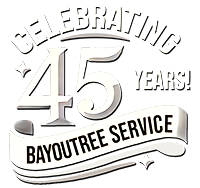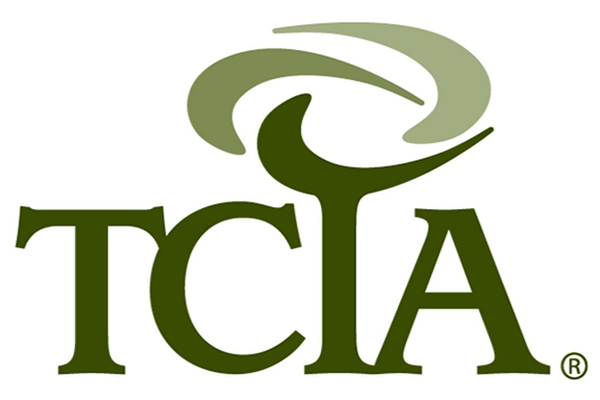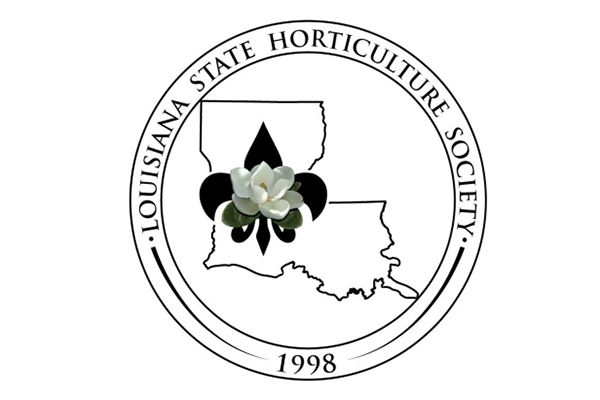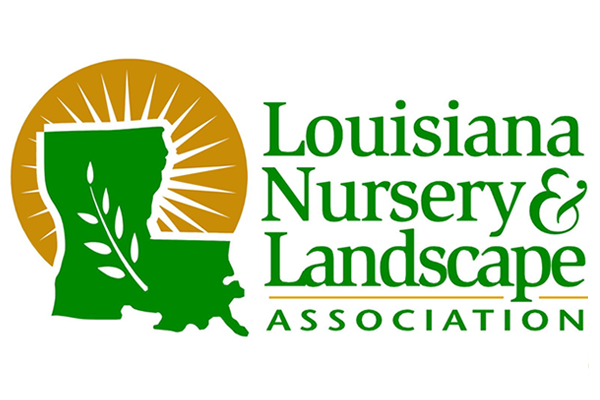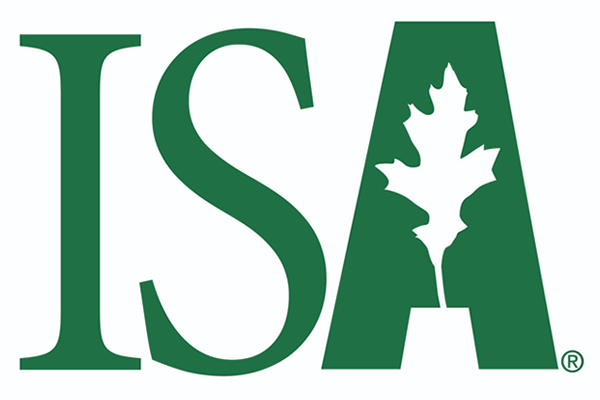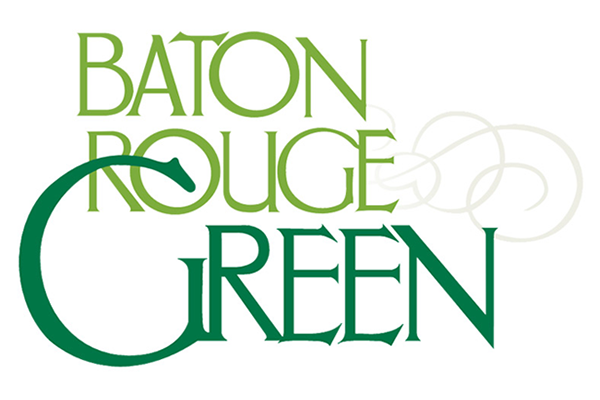At Bayou Tree Service, our certified arborists are dedicated to preserving the beauty and health of Louisiana's trees. Serving New Orleans and Baton Rouge, we provide expert tree care tailored to the unique challenges of our region. With over 30 years of experience, we are committed to excellence in arboriculture.
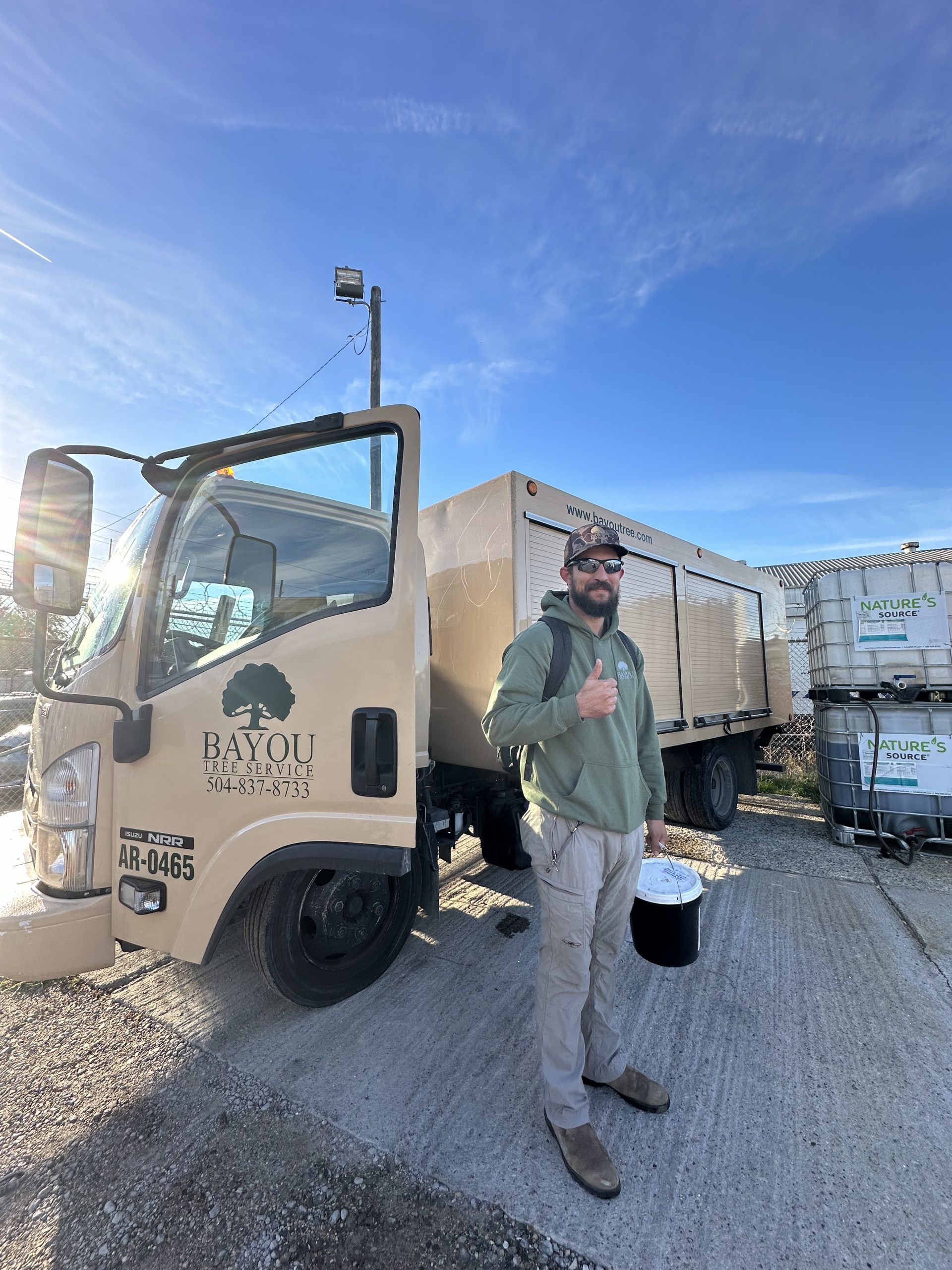
What Is an Arborist?
An arborist is a professional who specializes in the care of individual trees. They are trained in the art and science of planting, maintaining, and diagnosing trees. Arborists understand the needs of trees and provide services to meet those needs, ensuring trees remain healthy and safe.
- Education and Training: New Orleans arborists often have formal education in arboriculture or related fields.
- Certification: Many arborists, like those at Bayou Tree Service, are certified by professional organizations such as the International Society of Arboriculture (ISA).
The Role of Certified Arborists in Tree Health and Urban Forestry
Certified arborists play a crucial role in urban forestry, contributing to the management and care of trees in urban environments.
- Tree Preservation: Implementing strategies to preserve mature trees.
- Urban Planning: Advising on tree selection and placement in urban development.
- Environmental Stewardship: Promoting biodiversity and ecological health.
- Community Education: Educating the public on the importance of trees.
Certified New Orleans arborists are equipped to handle complex tree issues, from diagnosing diseases to implementing advanced care techniques.
Benefits of Certified vs. General Tree Care Professionals
Choosing a certified Baton Rouge arborist over a general tree care professional offers several advantages:
- Advanced Knowledge: Certified arborists have demonstrated proficiency in all aspects of tree care.
- Ethical Practices: Commitment to a Code of Ethics ensures professionalism and integrity.
- Up-to-Date Techniques: Ongoing education keeps them informed about the latest research and methods.
- Risk Reduction: Proper care reduces the risk of tree failure and associated property damage.
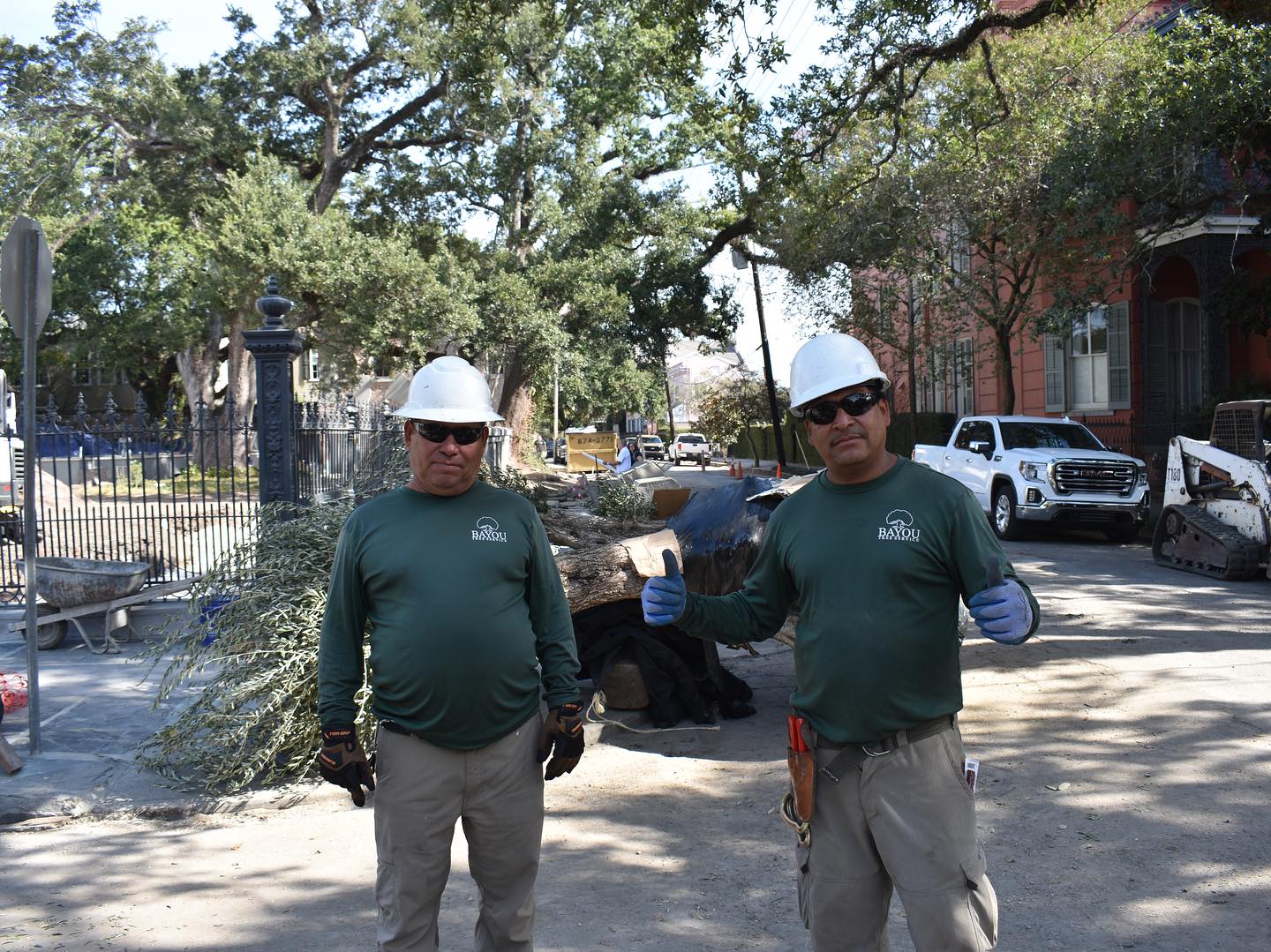
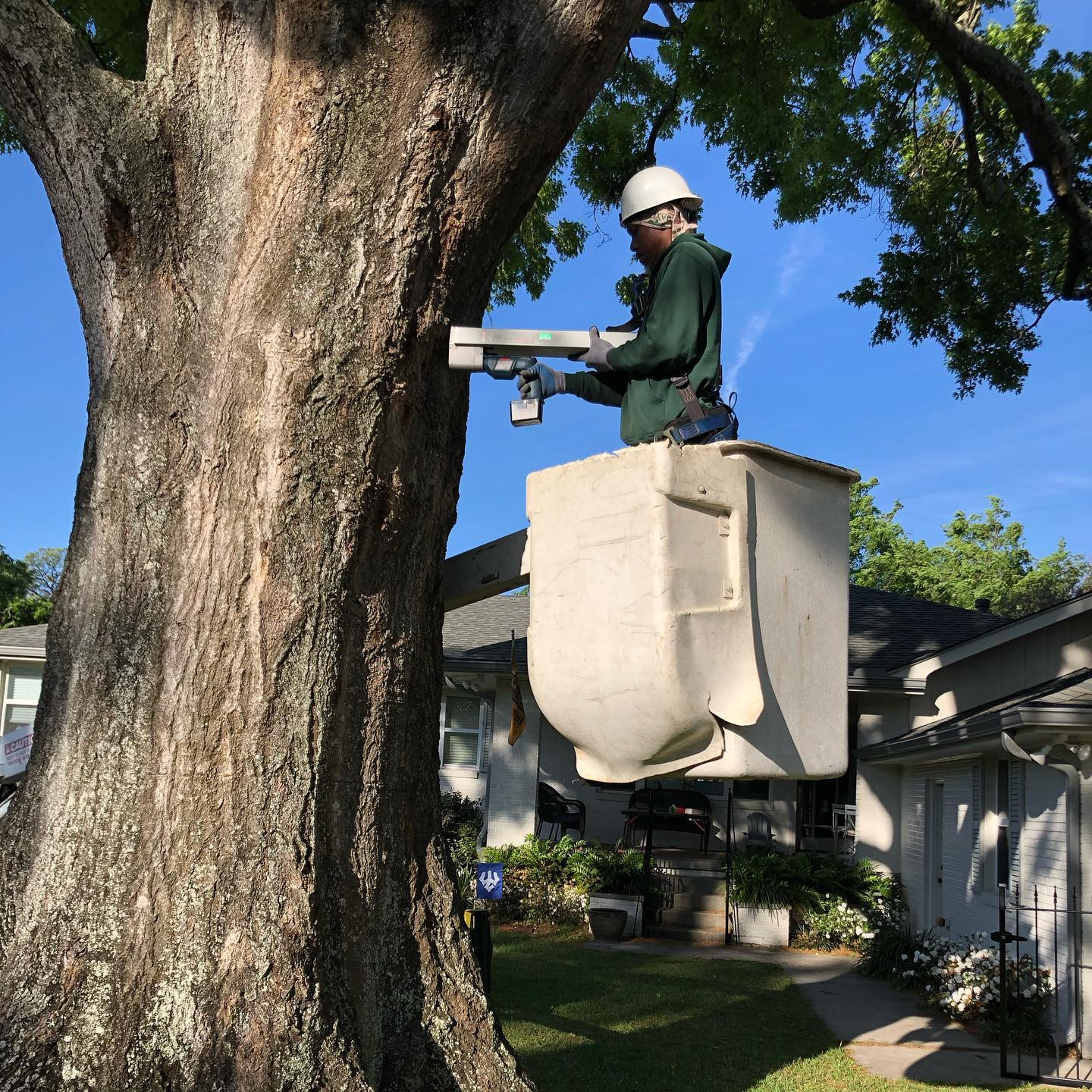
Why Choose Bayou Tree Service?
Selecting the right arborist is essential for the health and longevity of your trees. Bayou Tree Service has been the trusted choice for homeowners, businesses, and municipalities in Louisiana for over three decades. Our dedication to exceptional service, combined with our deep-rooted understanding of the local environment, sets us apart in the industry. We believe in not just meeting but exceeding our clients' expectations through professionalism, expertise, and a genuine passion for tree care.
Our Unique Expertise
Bayou Tree Service is a leader in Louisiana's tree care industry, offering unparalleled expertise and a deep understanding of local tree species.
- ISA-Certified Arborists: Our team includes multiple certified professionals.
- Local Experience: Decades of service in New Orleans and Baton Rouge.
- Comprehensive Services: From routine maintenance to emergency storm response.
We pride ourselves on delivering personalized service tailored to each client's needs.
Tree Care Challenges in Louisiana
Louisiana's rich ecosystems and vibrant landscapes are characterized by a vast array of tree species. However, caring for trees in this region is not without its difficulties. The state's unique climate and environmental conditions present specific challenges that can affect tree health and longevity.
From the sweltering heat and high humidity to the threat of hurricanes and flooding, trees in Louisiana endure stresses that require specialized care and attention. Understanding these challenges is crucial for effective tree maintenance and preservation.
Environmental Factors Affecting Tree Health
Louisiana's unique climate presents specific challenges:
- High Humidity and Heat:
- Promotes fungal diseases and pests.
- Causes stress on certain tree species.
- Hurricanes and Severe Weather:
- High winds can damage or uproot trees.
- Flooding affects root systems and soil stability.
- Soil Conditions:
- Varied soil types, from heavy clay to sandy loam.
- Nutrient deficiencies or excesses require tailored care.
Overview of Louisiana's Native Trees
Louisiana boasts a rich diversity of native trees, each with its own care requirements.
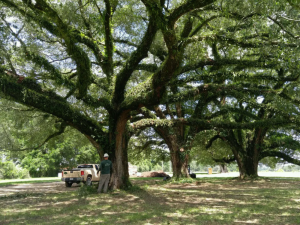
Live Oaks (Quercus virginiana):
- Iconic sprawling branches.
- Require careful pruning to maintain structure.
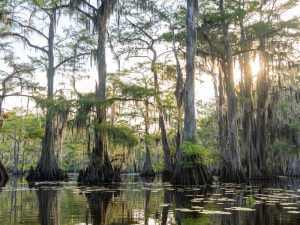
Bald Cypress (Taxodium distichum):
- Thrives in wet conditions; common in swamps.
- Unique root structures called "knees."
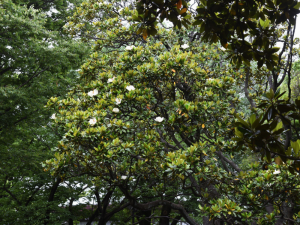
Southern Magnolia (Magnolia grandiflora):
- Large, fragrant flowers.
- Sensitive to soil compaction and root disturbance.
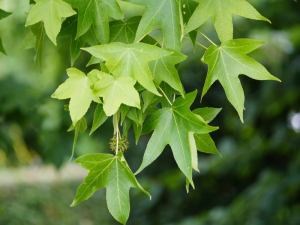
Sweetgum (Liquidambar styraciflua):
- Known for star-shaped leaves and spiky seed pods.
- Prone to root damage in urban settings.
Tree Species That Need Specific Expertise
Certain trees require specialized knowledge for proper care:
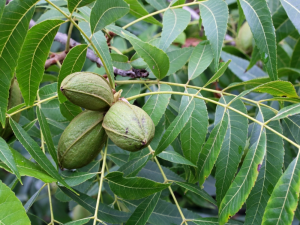
Pecan Trees (Carya illinoinensis):
- Susceptible to pests like pecan weevils and aphids.
- Require regular monitoring and integrated pest management.
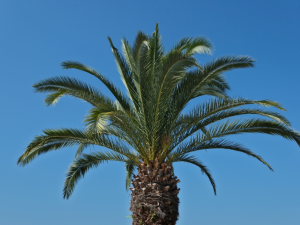
- Vulnerable to diseases like lethal bronzing and ganoderma butt rot.
- Need specialized nutrition and care.
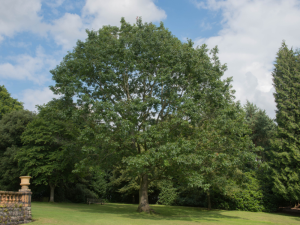
Red Oaks:
- At risk of oak wilt disease.
- Pruning should be timed to reduce infection risk.
Impact of Climate Change
Climate change is increasingly influencing the health and resilience of trees in Louisiana. As global temperatures rise and weather patterns shift, trees in New Orleans and Baton Rouge face new challenges that can affect their growth, health, and survival. Understanding these impacts is essential for implementing effective tree care strategies in our region.
Changing Weather Patterns
Louisiana’s climate is characterized by hot, humid summers and mild winters. However, climate change is altering these familiar patterns, leading to:
The Gulf Coast is experiencing more frequent and intense hurricanes and tropical storms. These severe weather events can have devastating effects on trees:
-
- Physical Damage: High winds and heavy rains can break branches, uproot trees, and cause structural damage.
- Soil Saturation: Excessive rainfall leads to waterlogged soils, reducing oxygen availability to roots and increasing the risk of root rot.
- Saltwater Intrusion: Storm surges can introduce saltwater into coastal soils, which is detrimental to many tree species not adapted to saline conditions.
After Hurricane Ida in 2021, many mature oaks and cypress trees suffered significant damage due to wind stress and flooding.
While Louisiana is known for its abundant rainfall, climate change is contributing to longer and more severe droughts:
-
- Water Stress: Prolonged dry periods limit water availability, causing stress that weakens trees and makes them more susceptible to pests and diseases.
- Nutrient Uptake Issues: Dry soils can hinder a tree’s ability to absorb essential nutrients, leading to deficiencies and poor growth.
- Increased Fire Risk: Dry conditions elevate the risk of wildfires, which can destroy trees and alter ecosystems.
Impact on Urban Trees: Drought stress is particularly challenging for urban trees, which may already be compromised by limited rooting space and soil compaction.
Invasive Species
Climate change is also facilitating the spread of invasive species, introducing new threats to Louisiana’s native trees.
Warmer temperatures and milder winters allow pests and pathogens that were once limited by cold climates to thrive in Louisiana:
-
- Pests: Insects like the emerald ash borer and Asian longhorned beetle have the potential to infest and kill large numbers of trees.
- Diseases: Fungal pathogens such as laurel wilt and sudden oak death can spread rapidly, affecting tree health on a broad scale.
Consequences: These invasive species can outcompete native organisms, disrupt ecosystems, and lead to significant economic losses in forestry and landscaping.
- Requires Proactive Management Strategies
Addressing the threat of invasive species demands vigilance and proactive measures:
-
- Early Detection: Regular monitoring helps identify infestations before they become widespread.
- Integrated Pest Management (IPM): Employing a combination of biological, cultural, mechanical, and chemical controls to manage pests effectively and sustainably.
- Public Education: Informing the community about invasive species encourages cooperation in prevention and reporting.
Role of Arborists: Certified arborists are essential in developing and implementing these management strategies, leveraging their expertise to protect tree populations.
Frequently Asked Questions
Our Process
Understanding that every tree and property is unique, we have developed a thorough process to ensure the highest quality of care. Our approach combines scientific expertise with personalized service to address the specific needs of your trees and landscape. From the initial consultation to ongoing maintenance, we are committed to preserving the health and beauty of your trees through proven methodologies and best practices.
Tree Health Specialist Inspection and Care Methodology
At Bayou Tree Service, we follow a comprehensive approach:
1.Initial Consultation:
- On-Site Visit: Evaluate the tree and surrounding environment.
- Client Discussion: Understand concerns and desired outcomes.
2. Detailed Assessment:
- Diagnostic Testing: Soil analysis, pest identification.
- Risk Evaluation: Assess potential hazards.
3. Customized Care Plan:
- Treatment Recommendations: Based on scientific research.
- Maintenance Schedule: Outline of services and timelines.
- Transparent Pricing: Detailed cost estimates.
4. Professional Implementation:
- Expert Execution: Performed by expertly trained team members.
- Safety Protocols: Adherence to industry safety standards.
- Environmental Considerations: Use of eco-friendly products.
5. Ongoing Support:
- Follow-Up Visits: Monitor progress and adjust treatments.
- Client Education: Provide tips and guidance for at-home care.
- Emergency Services: Available for unexpected issues.
More About Our Arborist Services
At Bayou Tree Service, we offer a comprehensive suite of arborist services designed to nurture and protect your trees throughout their lifespan. Our certified professionals are equipped with the knowledge and tools to handle all your Baton Rouge tree care needs, from preventive maintenance to complex treatments. We believe in a holistic approach that promotes the overall health, safety, and beauty of your trees, enhancing the value and enjoyment of your property.
Pruning and Trimming
- Structural Pruning: Enhance tree architecture.
- Crown Reduction: Reduce size for safety and aesthetics.
- Deadwood Removal: Eliminate hazardous branches.
Disease and Pest Management
- Integrated Pest Management (IPM): Sustainable approach to control pests.
- Fungal Treatments: Prevent and treat infections.
- Nutrient Management: Fertilization for optimal health.
Cabling and Bracing
- Structural Support: Reinforce weak limbs or trunks.
- Dynamic Systems: Allow natural movement while providing support.
Lightning Protection Systems
- Installation: Safeguard valuable trees from lightning strikes.
- Maintenance: Regular inspections to ensure system integrity.
Root Zone Management
- Aeration: Improve soil oxygen levels.
- Mulching: Enhance soil moisture and nutrient retention.
- Compaction Relief: Alleviate soil compaction around roots.
Safety and Environmental Practices
The safety of our team and clients, along with our commitment to environmental stewardship, is at the core of everything we do. We implement rigorous protocols and use sustainable practices to ensure that our services not only enhance your property but also protect the natural world.
- Safety Training:
-
- Regular staff training on safety procedures.
- Compliance with OSHA standards.
- Environmental Stewardship:
-
- Use of biodegradable and non-toxic products.
- Minimizing waste and promoting recycling.
- Equipment Maintenance:
-
- Regular inspections and maintenance of tools and machinery.
- Ensuring equipment is in optimal condition for efficiency and safety.
Basic Louisiana Tree Care Tips for Homeowners
Proper tree care is essential for the health and longevity of your trees. While professional arborist services are crucial for complex tasks, there are several basic care practices that homeowners can perform to support their trees' well-being.
Watering
Watering is fundamental to a tree's survival, especially in the early stages of growth or during periods of drought.
- New Trees: Newly planted trees require regular watering to establish strong root systems. For the first few years, it's important to provide consistent moisture. Water deeply and slowly, allowing the water to penetrate the soil to a depth of at least 12 inches. This encourages roots to grow downward and anchor the tree firmly.
- Mature Trees: Established trees are generally more resilient but can still suffer during prolonged dry spells. Deep watering during these times helps maintain their health. Watering should be done less frequently but more thoroughly, ensuring that the water reaches the deeper root zones. Early morning or evening is the best time to water, reducing evaporation loss.
Mulching
Mulching offers numerous benefits and is an easy practice for homeowners to implement.
- Proper Application: Apply a layer of organic mulch, such as wood chips or shredded bark, around the base of the tree. The ideal depth is 2 to 4 inches. It's important to avoid piling mulch against the trunk—a practice known as "volcano mulching"—as this can lead to rot and pest issues. Instead, spread the mulch in a wide, even layer extending out to the tree's drip line if possible.
- Benefits: Mulch helps retain soil moisture by reducing evaporation, which is especially beneficial during hot Louisiana summers. It also suppresses weed growth that competes with the tree for nutrients and water. Additionally, mulch regulates soil temperature, keeping roots cooler in the summer and warmer in the winter, and as it breaks down, it adds organic matter to the soil, improving fertility.
Pruning
Regular pruning is vital for maintaining the structural integrity and aesthetic appearance of your trees.
- Timing: The best time to prune most trees is during their dormant season, typically late fall to early spring. Pruning during dormancy minimizes stress on the tree and reduces the risk of pest infestations or disease transmission.
- Technique: Focus on removing dead, diseased, or damaged branches first. Next, eliminate any branches that cross or rub against each other, as these can cause wounds that invite pests and pathogens. Always use clean, sharp tools to make clean cuts, and avoid removing more than 25% of the tree's canopy in a single year.
Fertilization
Trees, like all plants, require nutrients to grow and thrive. Fertilization can help address nutrient deficiencies in the soil.
- Soil Testing: Before applying fertilizers, it's essential to conduct a soil test to determine the specific nutrient needs of your trees. Soil tests can reveal pH levels and nutrient concentrations, guiding you in selecting the appropriate fertilizer formulation.
- Application: Use slow-release fertilizers recommended for trees, following the manufacturer's instructions carefully. Apply the fertilizer evenly over the root zone, which often extends beyond the tree's canopy. Avoid over-fertilization, as excessive nutrients can harm the tree and negatively impact the environment by leaching into waterways.
When to Contact an Arborist
While homeowners can handle basic tree care tasks, certain situations require the expertise of a certified arborist.
Situations Requiring an Arborist
There are scenarios where professional intervention is not just recommended but essential for safety and the health of the tree.
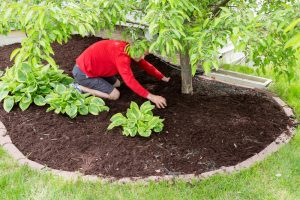
- Large Trees and Complex Pruning: Trees that are tall or have large branches should be pruned by professionals. Climbing trees and using chainsaws at height present significant safety risks. Arborists have the training and equipment to perform these tasks safely and effectively.
- Disease or Pest Infestations: Signs of disease—such as unusual leaf discoloration, fungal growths, or dieback—require a professional diagnosis. Similarly, evidence of pest infestations like boring insects or widespread defoliation should be evaluated by an arborist, who can recommend appropriate treatment plans.
- Structural Concerns and Safety Risks: If a tree is leaning, has cracks in the trunk, or shows root damage, it may pose a risk of falling. Arborists can assess the structural integrity of the tree and determine if cabling, bracing, or removal is necessary to prevent property damage or personal injury.
- Emergency Situations: After severe weather events, trees may be damaged or destabilized. An arborist should handle any cleanup involving large limbs, uprooted trees, or situations where trees are entangled with power lines.
What to expect from a consultation?
After a person has contacted their Baton Rouge arborist with an issue about their tree, it's our job to visit the site to evaluate the tree for any health or structural problems. This site visit is called a consultation. During a consultation, we discuss our customers' concerns, assess the tree's health, and identify any potential problems.
After the evaluation, the arborist will discuss their findings with the tree owner. They will then recommend a care plan based on those findings. Finally, they will assess the likelihood of the plan's success.
This could be as simple as pruning or fertilizing, or removal in cases where the tree is found to be either unsafe or beyond the point of recovery. In most cases, the property owner has the final say in whether to accept a proposed tree care program.
A certified arborist in Baton Rouge is a tree care expert who has gone above the basic licensing requirements. Below is a list of certifications held by one or more of our certified arborists.
ISA – The ISA offers a certification program for arborists that is more challenging than state programs. An arborist needs years of experience before they can take the ISA certification exam. Those who finish the program have demonstrated exemplary knowledge in tree worker safety, tree biology, soil science, tree nutrition and fertilization, construction site procedures, and myriad of other disciplines.
Getting this certification involves continuously learning about the city's trees, addressing the community's tree needs, and interacting professionally with the public. Bayou Tree Service currently has six ISA Certified Arborists on staff.
TRAQ – The ISA provides the Tree Risk Assessment Qualification (TRAQ) to tree experts. These experts are able to identify tree hazards and recommend ways to mitigate or eliminate them.
Urban trees encounter numerous challenges like construction, maintenance, collisions, pollution, and diseases. They also struggle with limited space for their roots and compacted soil. These challenges can affect the health and growth of city trees.
A TRAQ certified arborist can identify tree risks in urban areas and create solutions to protect people and property. They also work to ensure the tree's survival. Bayou Tree Service currently has seven TRAQ certified arborists on staff.
CTSP – This is a certification for arborists who excel in safety and communication at work sites. It is awarded by the Tree Care Industry Association. Arborists who hold this certification have demonstrated their ability to prioritize safety and effectively communicate with their crews. Those who hold a CTSP certificate have demonstrated a steadfast commitment to the health and safety of their colleagues.
Certified Treecare Safety Professionals ensure that everyone stays safe and returns home to their families after completing complex tasks. They lead with their expertise to prioritize safety.
Their main goal is to protect the well-being of all individuals involved in tree care operations. This includes implementing safety measures and protocols to prevent accidents and injuries. Bayou Tree Service has 3 CTSP arborists on staff.
Call Now for Help with Your Louisiana Trees
Trees are a vital part of Louisiana's landscape and heritage. Proper care not only enhances their beauty but also ensures they continue to provide environmental benefits for years to come. Trust the certified arborists at Bayou Tree Service to provide the expertise and dedication your trees deserve.
